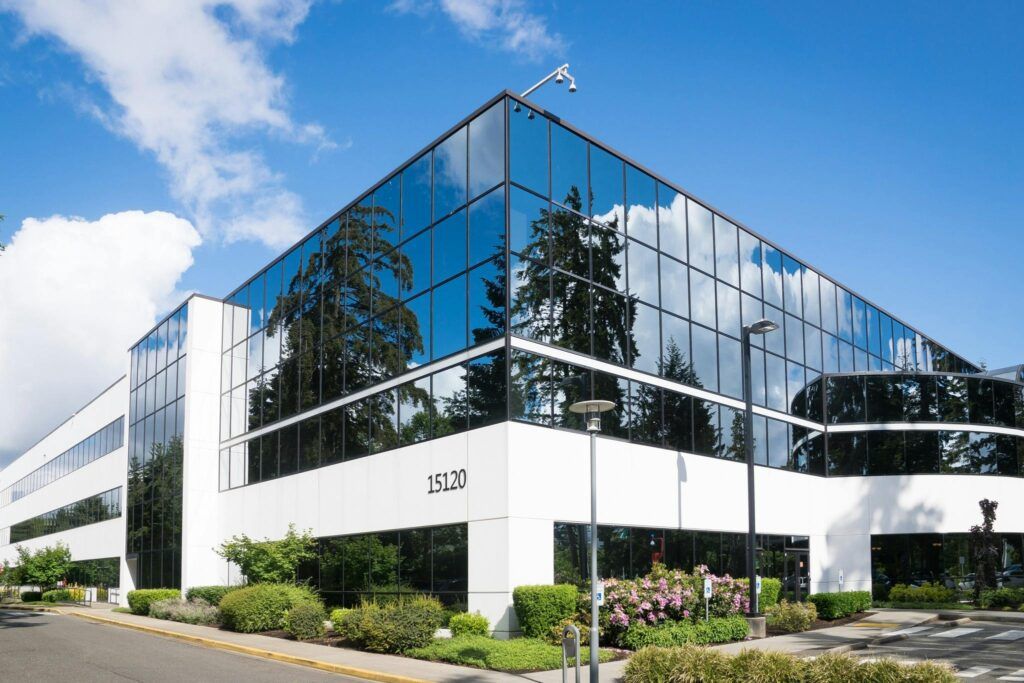With the increasing focus on sustainability and rising energy costs, improving energy efficiency in commercial buildings has become more important than ever. Making energy-efficient renovations reduces operational costs and enhances the building’s overall sustainability. Whether you’re managing an office building, a retail space, or an industrial facility, targeted renovations can significantly impact energy consumption, leading to long-term savings and a smaller environmental footprint. This article will explore some of the key areas where energy efficiency can be maximized through renovations.
Upgrading HVAC Systems
Heating, ventilation, and air conditioning (HVAC) systems are major contributors to energy consumption in commercial buildings. An outdated or inefficient HVAC system can lead to excessive energy use and higher utility bills, making it a prime target for energy-efficient renovations. Upgrading your HVAC system to a more energy-efficient model can reduce energy usage while also improving indoor air quality.
Modern HVAC systems are designed to operate more efficiently, often using advanced technologies such as variable-speed motors and smart thermostats that adjust heating and cooling based on occupancy and outside temperatures. These systems are better at maintaining consistent indoor temperatures, reducing the need for frequent adjustments, which can waste energy.
Regular maintenance is also crucial to keep HVAC systems running efficiently. Simple tasks like changing filters, checking for leaks, and cleaning coils can prevent the system from working harder than necessary, further reducing energy consumption. By upgrading and properly maintaining your HVAC system, you can significantly lower your building’s energy use and improve the comfort of its occupants.
Upgrading Windows for Better Insulation
One of the most effective ways to improve energy efficiency in a commercial building is through window replacement. Windows play a critical role in a building’s insulation, and old or inefficient windows can be a major source of energy loss. Heat can escape during the winter and enter during the summer, forcing your HVAC system to work harder to maintain a comfortable indoor temperature.
Replacing outdated windows with energy-efficient ones can make a big difference. Contemporary windows are built with enhanced insulation features, including double or triple glazing, low-emissivity (Low-E) coatings, and insulated frames. These features help to reduce heat transfer, keeping the interior of the building more stable in terms of temperature.
Incorporating window upgrades into your renovation plans reduces energy costs and enhances the comfort of the building’s occupants by eliminating drafts and reducing noise from outside. Energy-efficient windows can also help protect interiors from UV damage, prolonging the life of furnishings and equipment.
Installing Energy-Efficient Lighting
Lighting is another significant factor in a commercial building’s energy consumption. Traditional lighting systems, such as incandescent or fluorescent bulbs, consume more energy and have a shorter lifespan compared to modern energy-efficient alternatives. Switching to energy-efficient lighting solutions, such as LED lights, is an effective way to reduce energy usage while enhancing the overall lighting quality in your building.
LED lights consume much less energy than traditional bulbs and can last up to 25 times longer. This longevity reduces the need for frequent replacements, saving on both energy and maintenance costs. LEDs also produce less heat, which can decrease the load on your HVAC system, further contributing to energy savings.
Automated lighting controls, such as occupancy sensors and programmable timers, offer another layer of efficiency. These systems automatically adjust lighting based on the presence of people in a room or the time of day, reducing unnecessary energy use. For instance, lights can be set to turn off in unoccupied areas or dim during daylight hours, optimizing energy consumption without compromising comfort.
By upgrading to energy-efficient lighting and incorporating smart controls, you can significantly lower your building’s energy footprint while providing a well-lit and comfortable environment for occupants.
Insulation and Air Sealing
Proper insulation and air sealing are essential components of an energy-efficient building. Without adequate insulation, even the most advanced HVAC system will struggle to maintain a consistent indoor temperature, leading to increased energy use and higher costs. Insulation acts as a barrier that keeps warm air inside during the winter and cool air inside during the summer, reducing the need for heating and cooling.
There are various types of insulation to consider, including fiberglass, foam, and cellulose, each with different properties suited to specific areas of the building. Upgrading insulation in walls, ceilings, and floors can make a noticeable difference in energy efficiency. Additionally, insulating pipes, ducts, and water heaters can prevent energy loss and improve overall system performance.
Air sealing goes hand in hand with insulation. Gaps and cracks around doors, windows, and other openings allow air to escape, leading to drafts and temperature fluctuations. Sealing these leaks with caulk, weatherstripping, or spray foam can prevent unwanted air exchange and maintain a stable indoor climate. This step improves energy efficiency and also improves indoor comfort by eliminating drafts and cold spots.
Upgrading to Energy-Efficient Appliances and Equipment
Upgrading outdated, inefficient appliances and equipment to energy-efficient models is a necessary step in lowering energy usage in commercial buildings. Many older appliances use significantly more energy than newer, more efficient models, leading to higher operational costs.
Energy-efficient appliances, such as refrigerators, water heaters, and office equipment, are designed to perform the same tasks as their older counterparts but with less energy. For example, ENERGY STAR-rated appliances meet strict energy efficiency guidelines set by the U.S. Environmental Protection Agency, making them a smart choice for any commercial space.
Upgrading your building’s equipment can lead to immediate energy savings and lower long-term costs. While the initial investment may be higher, the reduced energy use and increased efficiency typically result in a quick return on investment. energy-efficient appliances also often come with rebates or incentives that can help offset the cost of upgrading.
Enhancing the energy efficiency of commercial buildings through targeted renovations is a smart investment that benefits both the environment and your bottom line. By focusing on these key areas, you can significantly reduce energy consumption and operational costs.
As you plan your renovations, consider the long-term advantages of each upgrade, including the potential for lower utility bills, increased property value, and a smaller carbon footprint. Making informed decisions about energy-efficient renovations improves the comfort and functionality of your building and contributes to a more sustainable future.









 The 2024 virtual Men’s Round Table will be held Q4, 2024, date TBD.
The 2024 virtual Men’s Round Table will be held Q4, 2024, date TBD.













